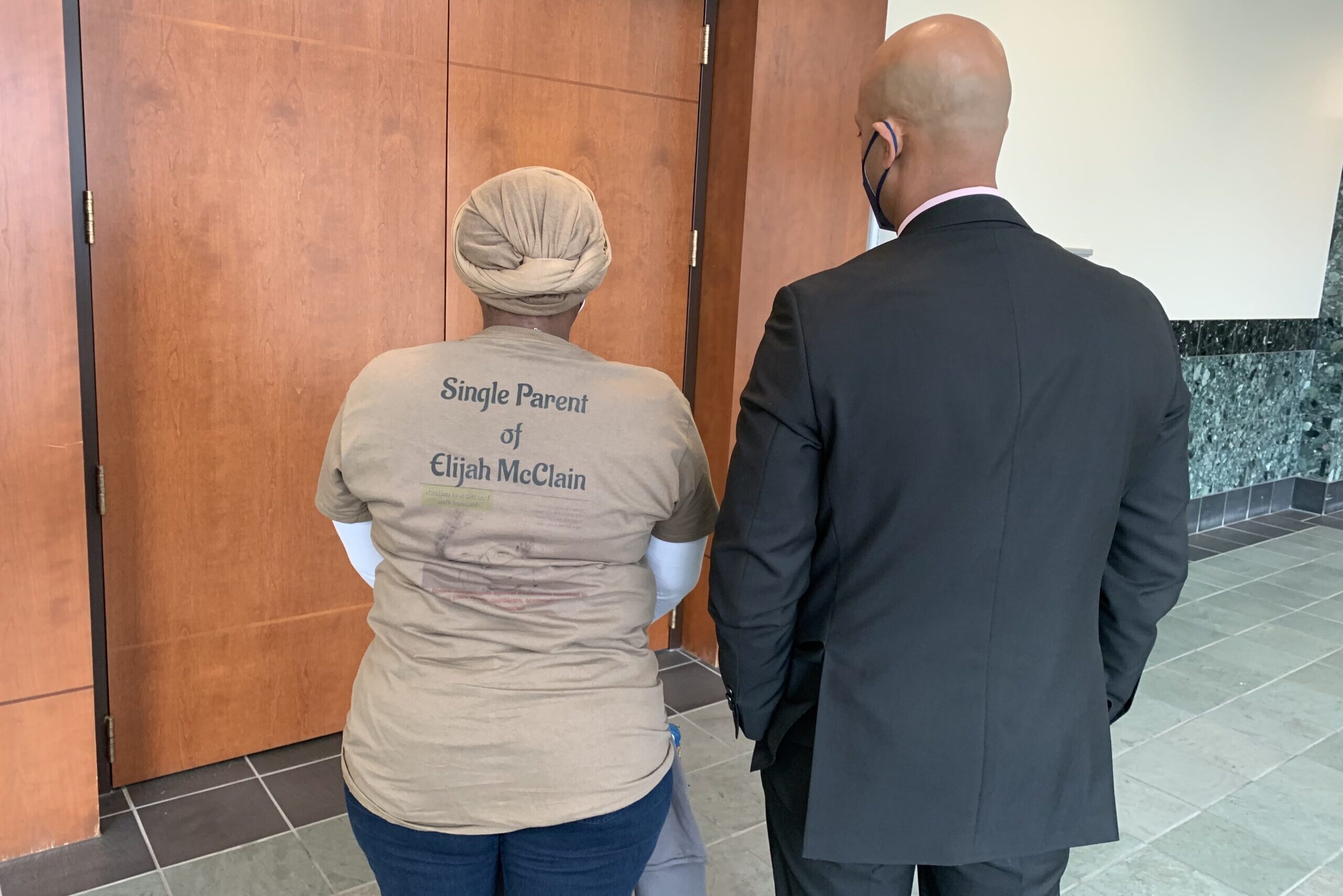
The three police officers and two paramedics charged with multiple felonies in the death of Elijah McClain had their first court appearance Monday in an Adams County courtroom.
In brief but separate court appearances, the officers — Randy Roedema, Nathan Woodyard and Jason Rosenblatt — each appeared masked, in dark suits and ties, with different lawyers. All waived their right to formal advisement and all are still out on bond with restrictions. None addressed the court.
They face a range of charges, including criminally negligent homicide and manslaughter, for what happened to McClain after they violently attempted to detain him in the summer of 2019. Paramedics on the scene also administered a high dose of ketamine in an effort to sedate him. McClain died a few days afterward.
Rodema and Woodyard are on administrative leave from the Aurora Police Department. Rosenblatt was fired for an earlier text messaging scandal involving a photo other officers took at the site where the arrest occurred.
Sitting in the courtroom on Monday was McClain’s mother, Sheneen McClain, along with her two lawyers.
McClain had never seen the officers implicated in her son’s death in person and was hoping they would meet her eye, but she said they didn’t.
“It was heart-wrenching to see them and I purposely stared at every last one of them to see if they had the guts to look at me,” McClain said afterward. “None of them did.”
The families and friends of the officers and paramedics sat on the opposite side of the courtroom.
Paramedics’ cases to be — mostly — unsealed
Lawyers representing paramedics Jeremy Cooper and Peter Cichuniec requested in September that the judge either shield the cases from public view or redact personal identifying information — this includes home addresses and phone numbers.
Judge Priscilla Loew took the more dramatic step and ruled to suppress their entire case files, but she told lawyers in court on Monday that she had no intention of suppressing the files for the long term.
Rather, she agreed to allow them 10 days to submit two versions of every court filing, a full one for the court and another “public view” one that will have personal identifying information redacted.
The suppression ruling was challenged by the Reporters Committee For Freedom of the Press on behalf of a handful of media organizations, including CPR News.
While Monday’s hearing was a chance for each man to formally hear the charges against them, all of the defendants waived their right to advisement. One, Rosenblatt, asked to no longer have to submit urine samples as a condition of his bond, and since the charges against him don’t have anything to do with substance abuse, the judge agreed.
Because these are grand jury indictments, there are no preliminary hearings. The next court appearance for all five defendants is in early January.








